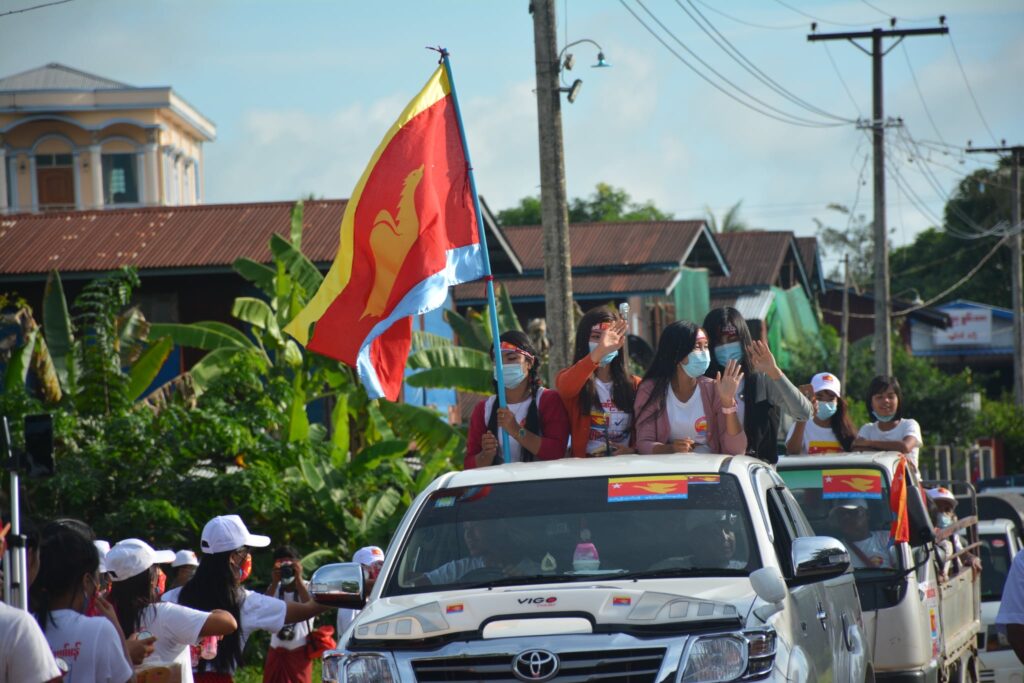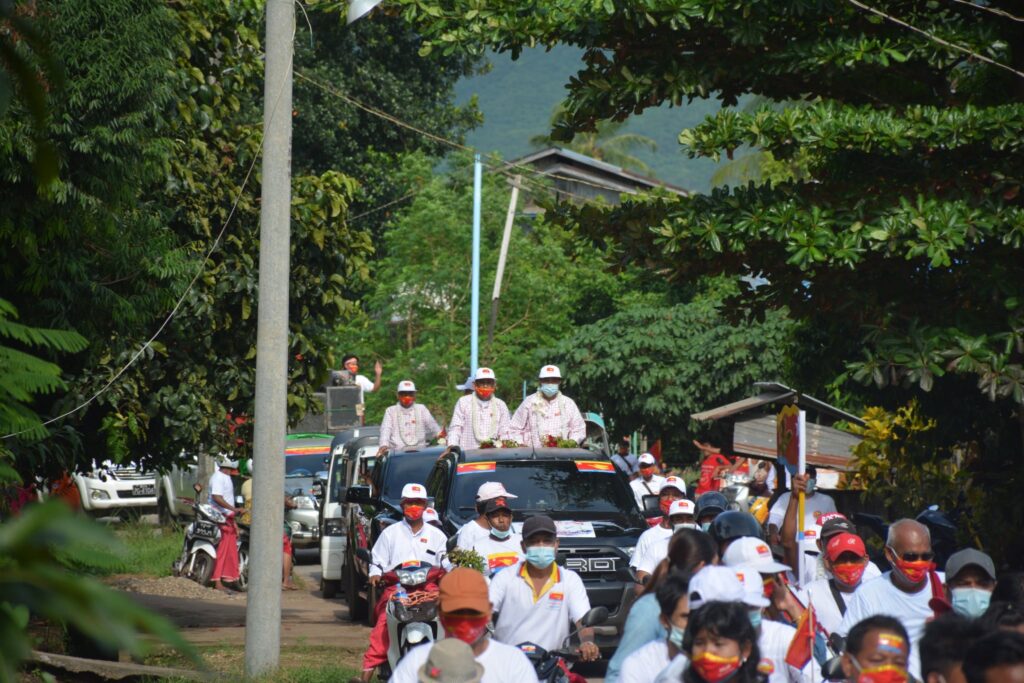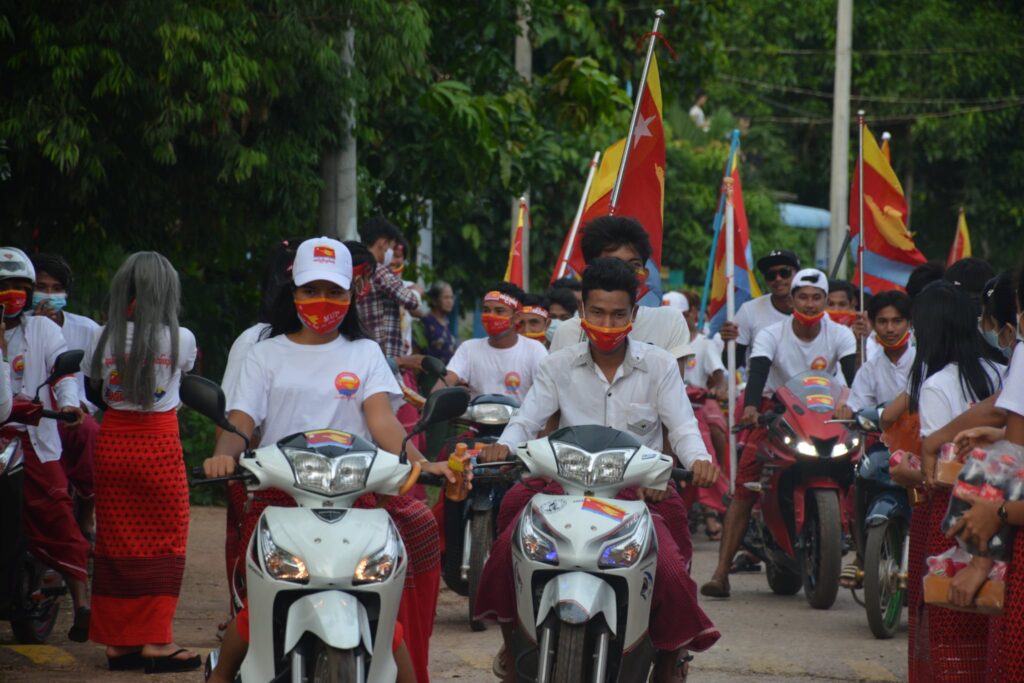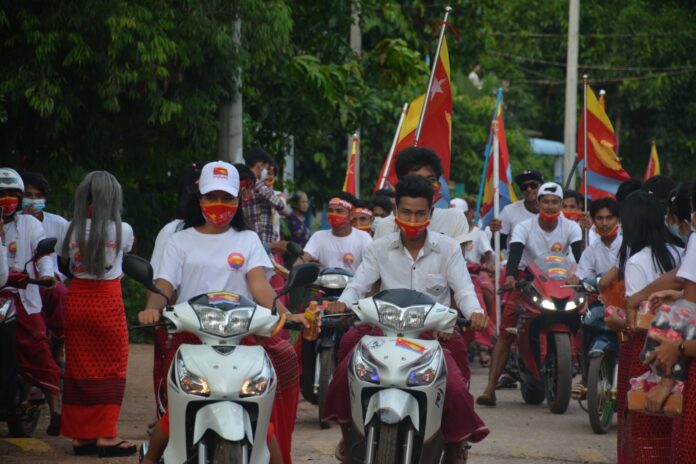After the military council announced that elections would be held in all 10 townships of Mon State, reports from locals indicate that some parties have begun putting up signboards in public areas, while the military council has tightened security at town entrances and exits.

Locals say that while resistance forces are urging people not to participate in the election, the military council may exert pressure and coercion to ensure participation.
We spoke to residents across Mon State to learn their views on the military council’s election—clouded by security concerns on both sides—and to understand how political parties are currently operating on the ground.
A woman from Ye Township
“I have no interest anymore. It’s not like before. With the current tight situation, we fear both sides. I don’t even want to know what’s going on, let alone ask questions. This election is their business—if they want to hold it, they will. But voting won’t be easy under these circumstances. Resistance forces are encouraging us not to vote. Of course, everyone wishes for political change. We’ve seen fighting for three or four years now, so we’d like to hope for some change through this election, but not everyone will participate. It’s also not easy to resolve things through voting. If it becomes mandatory like in 2008, where at least one person from every household must go, we might have to, but if voting is optional, most people probably won’t go.”
A woman from Kyaikmayaw Township

“Since around June, I’ve seen MUP party signboards in public areas. But apart from that, I haven’t heard much. In the past, putting up a signboard would come with fanfare. Now, it’s not done with public support—only committee members from the township or party seem to be doing it discreetly. Whether people support it or not, the parties seem determined to proceed. There’s no widespread public awareness campaign. It looks like the election has to happen, but the people are neither interested nor do they understand the process.
In Kyaikmayaw, I think villages like Kawthap, Tarana, and Dhammasa—where the military council is stationed—are not included in Phase 1 of the election. That’s probably because these villages are under NMSP control, and the military fears sabotage from armed groups. So, Phase 1 seems to exclude villages near resistance strongholds.”
A young man from Thanbyuzayat Township
“I haven’t seen much activity from parties in our area. Locals are still uncertain whether the election will even take place. If voting becomes unavoidable and they force us, we might have to vote. But there’s fear for our security—we also worry about retaliation from resistance forces.”
A young man from Kyaikmayaw Township

“In villages, the USDP seems to be preparing. Township administrators are all USDP members, so they quietly organize things and instruct their people to support them. But as locals, we don’t want this election, and there’s no security either. There’s no way we can participate enthusiastically like in the last general election. We haven’t even thought about which party to vote for. Holding an election without accountability won’t benefit the people. Young people are losing interest in politics altogether.”
A young man from a civil society organization
“Parties planning to contest are making preparations, but I haven’t seen any active campaigning in villages yet. Right now, security is tight in our area. Holding an election during the ongoing conflict won’t produce good political results. People aren’t welcoming or supporting this election. Personally, I won’t vote. In resistance-controlled areas, there’s hardly any chance to vote. Even if people vote, the results won’t bring significant change. Urban residents aren’t enthusiastic either; if they do participate, it’ll be out of fear for their own safety.”

